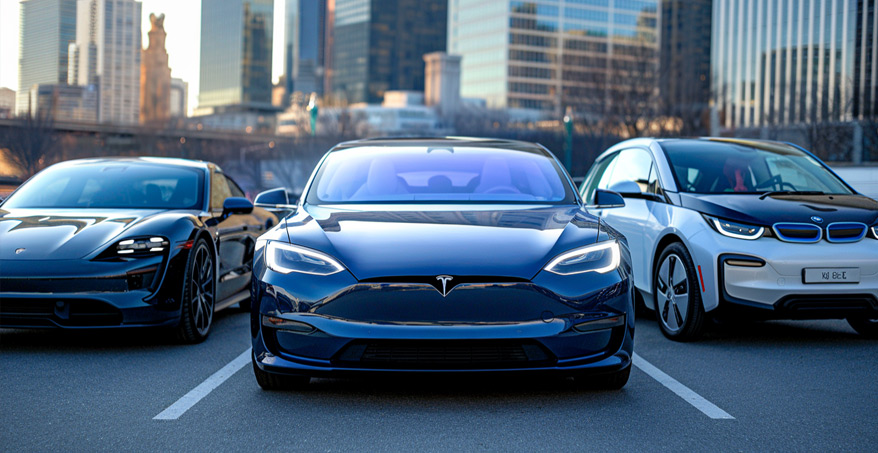Tesla faces fierce competition – see which EVs rival the brand in 2024’s electric showdown.
The electric vehicle (EV) market continues to evolve rapidly, with 2024 shaping up to be a landmark year for innovation and competition. Tesla, long considered the leader in the EV space, is facing increased competition as other automakers step up their game, introducing new models that challenge Tesla’s dominance.From advanced technology to range and pricing, these competitors are giving Tesla a run for its money.
Let’s dive into the 2024 electric challenge and see how Tesla compares to its rising competitors.
Tesla Model 3: The Benchmark for Affordable EVs
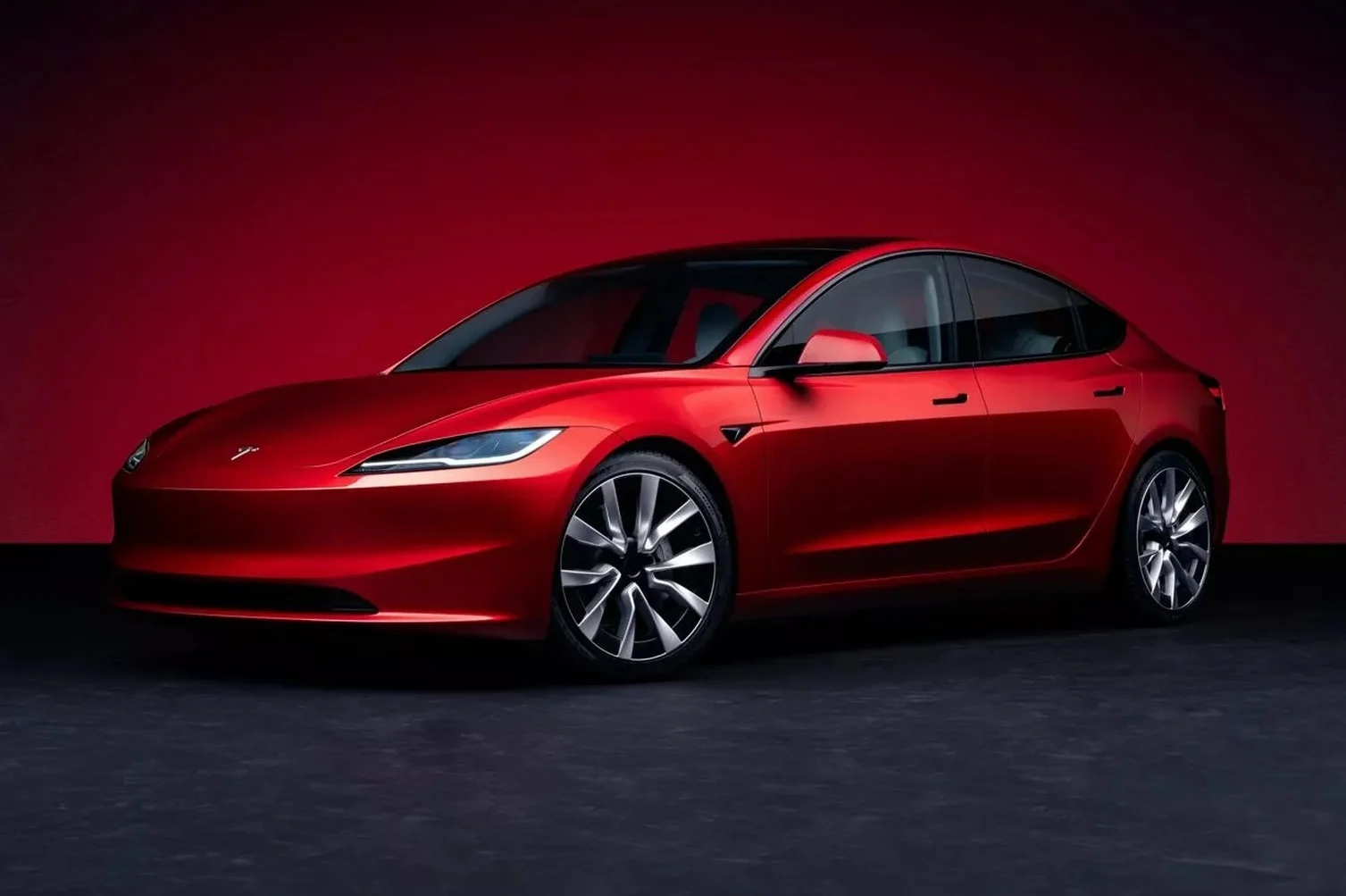
The Tesla Model 3 has been a mainstay in the electric vehicle market, largely thanks to its blend of performance, affordability, and cutting-edge tech. Starting at around $40,000, the Model 3 offers up to 358 miles of range on a single charge, making it one of the most efficient options available. The dual-motor all-wheel-drive (AWD) variant offers impressive acceleration, going from 0 to 60 mph in under 4 seconds.
One of Tesla’s key strengths remains its Autopilot system, which provides advanced driver assistance features like automatic lane changes and adaptive cruise control. Additionally, Tesla’s expansive Supercharger network offers fast-charging solutions that make long-distance travel a breeze. Tesla’s frequent over-the-air software updates keep the Model 3 at the cutting edge of technology, ensuring the vehicle improves over time.
Rivian R1T: The New Frontier of Electric Trucks
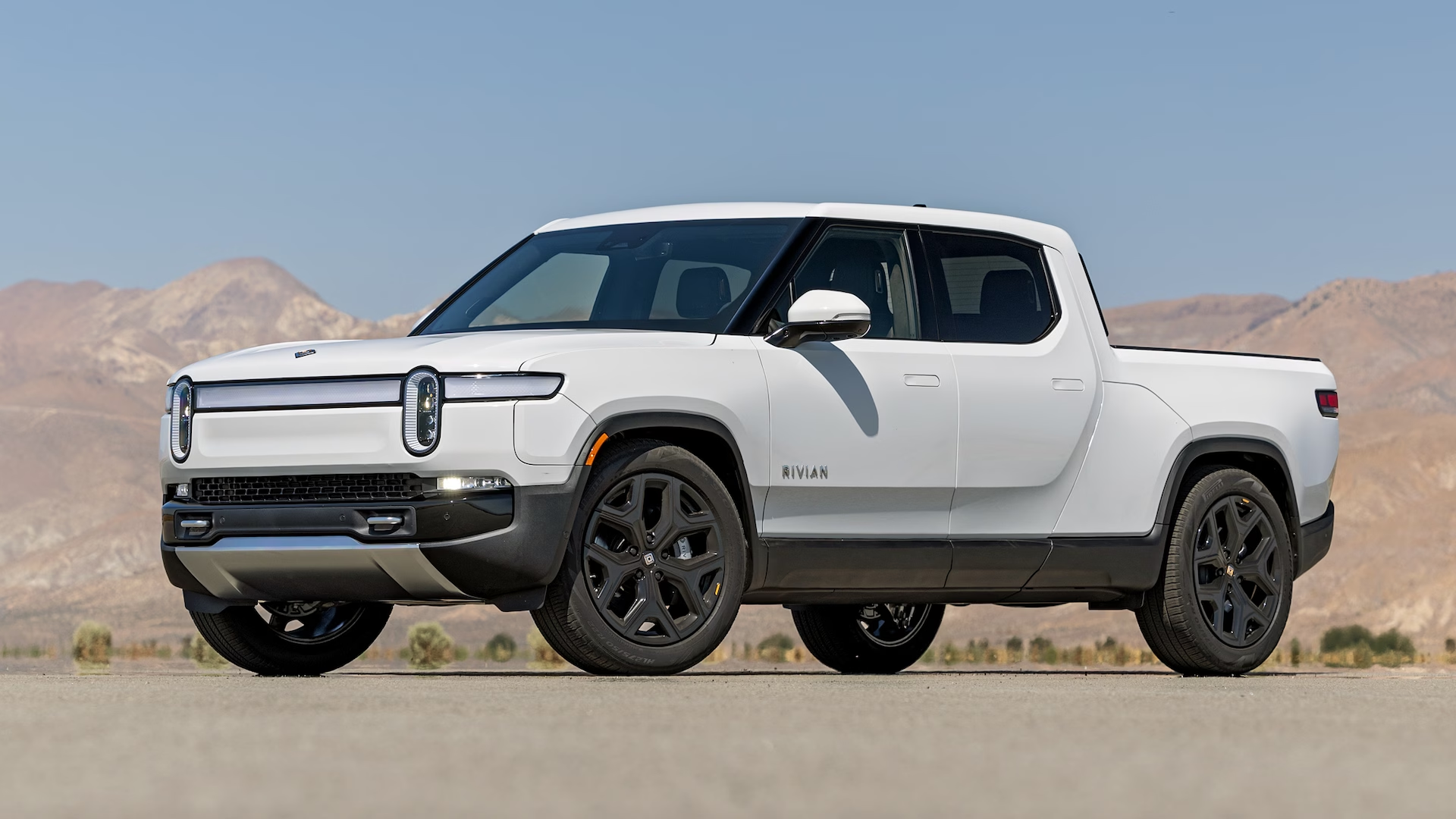
Rivian’s R1T pickup truck is a serious competitor, offering rugged versatility with modern EV technology. Starting at around $73,000, the R1T is designed for off-road enthusiasts who also want eco-friendly performance. With a range of up to 400 miles, the R1T stands out not just for its endurance but for its impressive off-road capabilities, featuring an adjustable air suspension, quad motors, and a high ground clearance.
The R1T’s unique selling point lies in its versatility—its Gear Tunnel and other innovative storage solutions make it ideal for adventurers. It also boasts advanced features like Driver+, Rivian’s semi-autonomous driving system, which competes with Tesla’s Autopilot. Rivian’s recent strides in building charging infrastructure across the U.S. further enhance its appeal to buyers looking for an alternative to Tesla’s offerings.
Lucid Air: Taking Aim at Tesla’s Premium Market
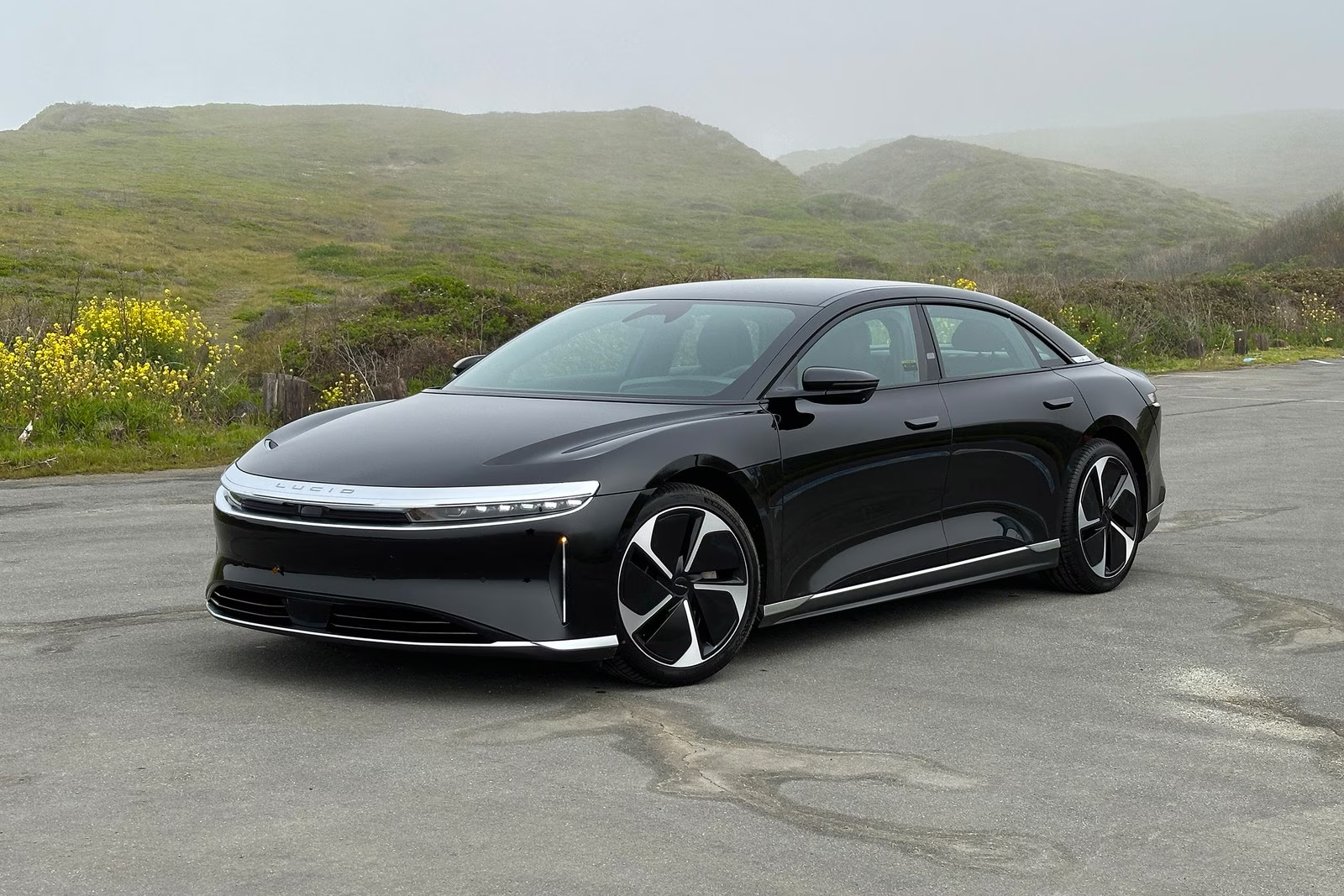
In the luxury EV category, the Lucid Air is Tesla’s biggest rival. With a starting price of around $83,000, the Lucid Air directly challenges the Tesla Model S by offering an astonishing range of up to 516 miles on a single charge—currently the longest range of any EV. Designed with both performance and luxury in mind, the Lucid Air offers over 1,100 horsepower in its top-tier trims and can accelerate from 0 to 60 mph in just over 2 seconds.
Inside, the Lucid Air delivers a high-end experience with a spacious, futuristic cabin and a 34-inch curved glass display for controls and infotainment. Advanced driver-assist features and over-the-air updates keep the Lucid Air at the forefront of innovation, making it a formidable competitor in the premium electric sedan space.
Ford Mustang Mach-E: A Stylish Crossover EV
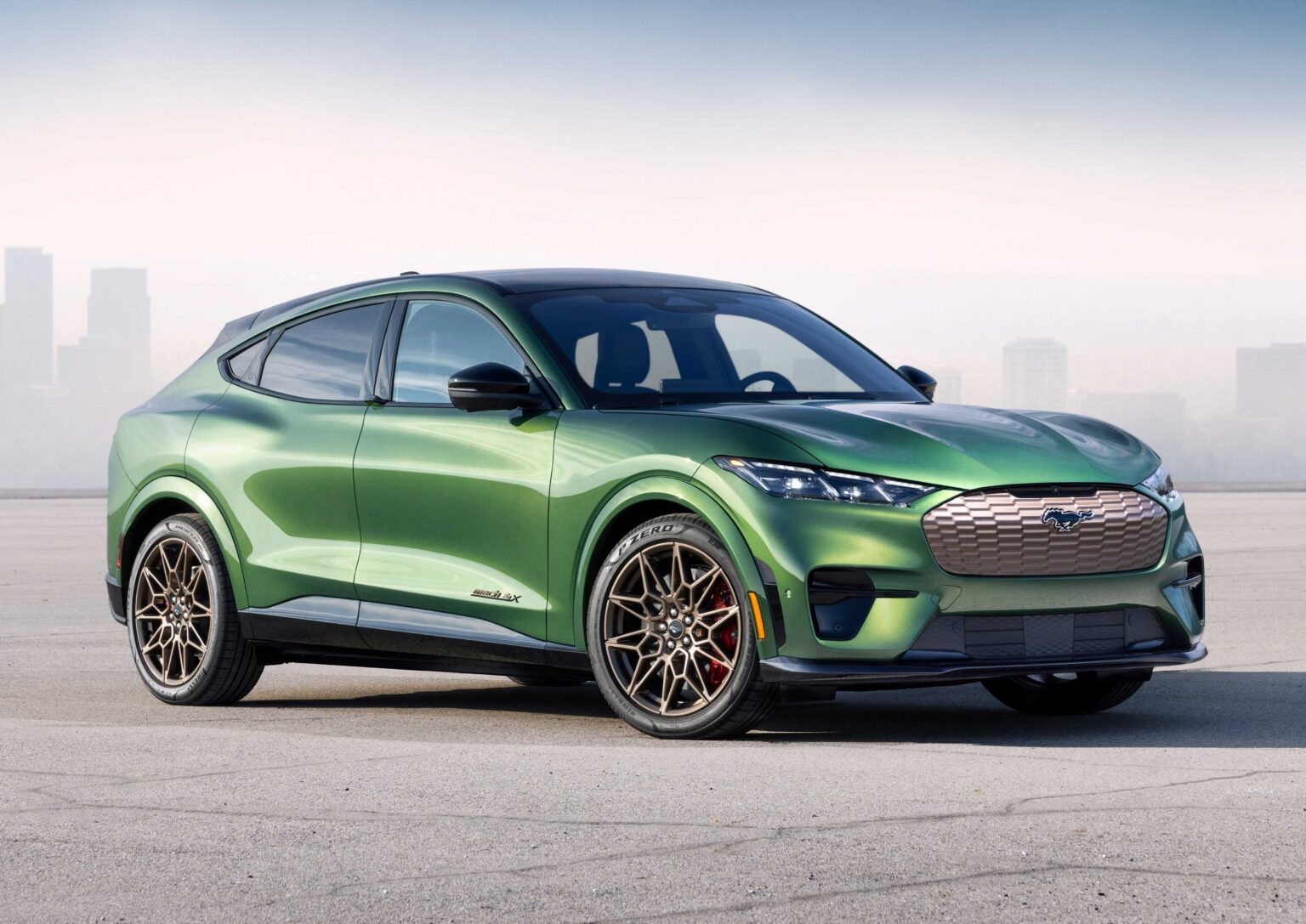
The Ford Mustang Mach-E offers something Tesla doesn’t—a legendary muscle car heritage blended with electric technology. With a starting price of around $43,000, the Mach-E is priced competitively against the Tesla Model Y, offering up to 312 miles of range depending on the trim. The Mustang Mach-E provides an engaging driving experience, with various performance modes that adjust the throttle, steering, and even the sound to mimic a traditional Mustang.
Ford’s BlueCruise hands-free driving system is another compelling feature, rivaling Tesla’s Autopilot for highway driving convenience. The Mustang Mach-E also benefits from Ford’s growing network of Electrify America fast chargers, which makes it easier to plan longer trips and reduce charging times.
Hyundai Ioniq 5: Tech-Forward and Family-Friendly
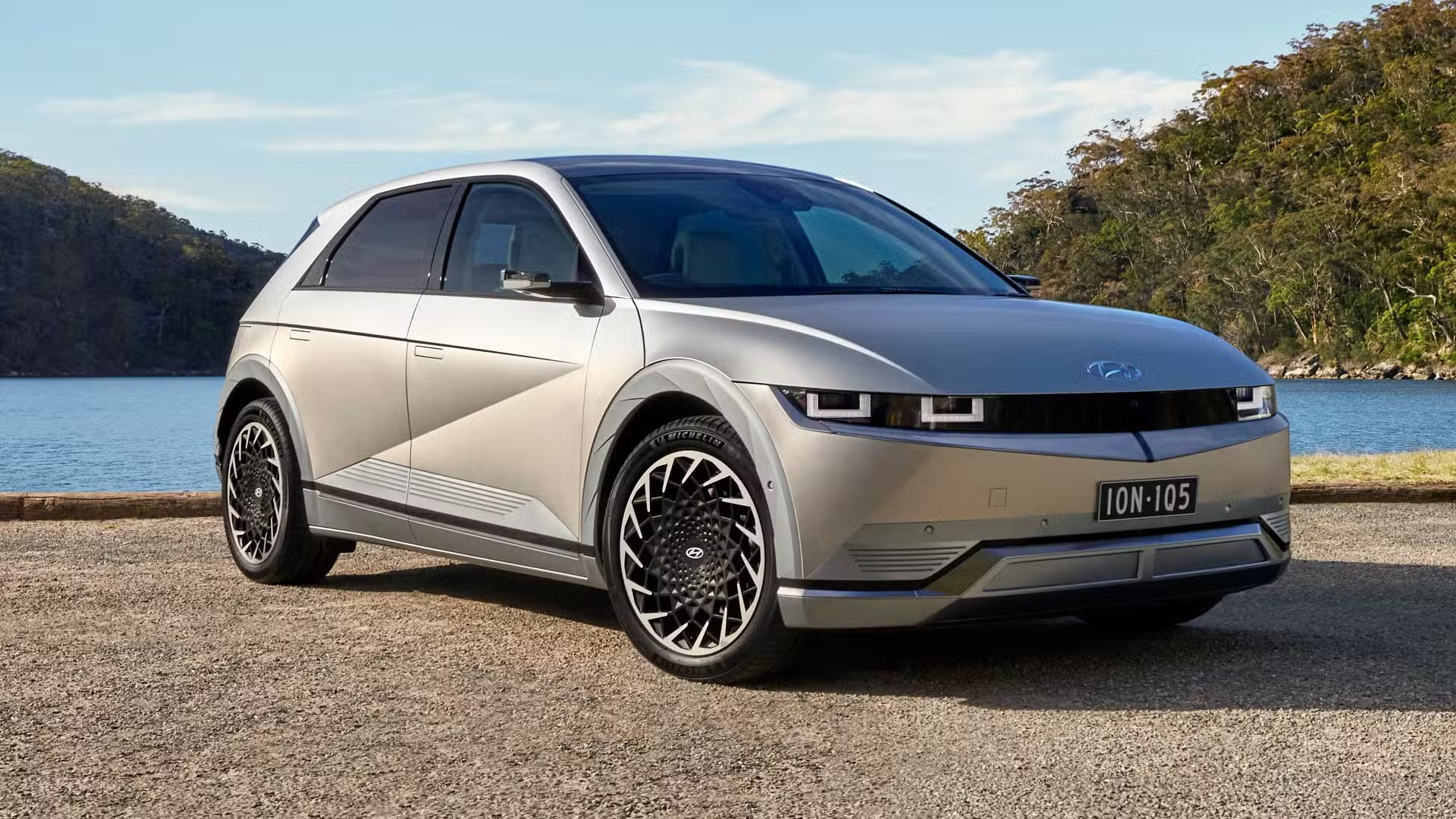
The Hyundai Ioniq 5 brings futuristic design and family-friendly features to the electric crossover segment. With a starting price around $42,000, it competes directly with the Tesla Model Y and Model 3. Offering up to 303 miles of range, the Ioniq 5 impresses with its spacious interior, advanced driver-assist features, and fast-charging capabilities that can restore 68 miles of range in just 5 minutes.
One of the Ioniq 5’s standout features is its Vehicle-to-Load (V2L) technology, which allows the vehicle to power external devices, making it perfect for outdoor enthusiasts or emergencies. Hyundai’s comprehensive warranty and its efforts to expand charging infrastructure in the U.S. also add value to this tech-forward competitor.
The 2024 Electric Challenge
Tesla remains a major player in the electric vehicle market, but the 2024 EV landscape is more competitive than ever. Rivals like the Lucid Air are pushing the limits of range and luxury, while the Ford Mustang Mach-E and Hyundai Ioniq 5 are proving that you don’t have to sacrifice style or affordability to go electric. Meanwhile, the Rivian R1T is pioneering electric truck capabilities that Tesla’s Cybertruck will soon have to contend with.
Each of these competitors offers something unique, whether it’s cutting-edge design, luxury features, or off-road versatility. For consumers, this increasing competition means more options and innovations in the EV space, making it an exciting time to transition to electric driving. Tesla’s Supercharger network and Autopilot still give it an edge, but with so many alternatives now available, the choice is more challenging—and exciting—than ever before.
